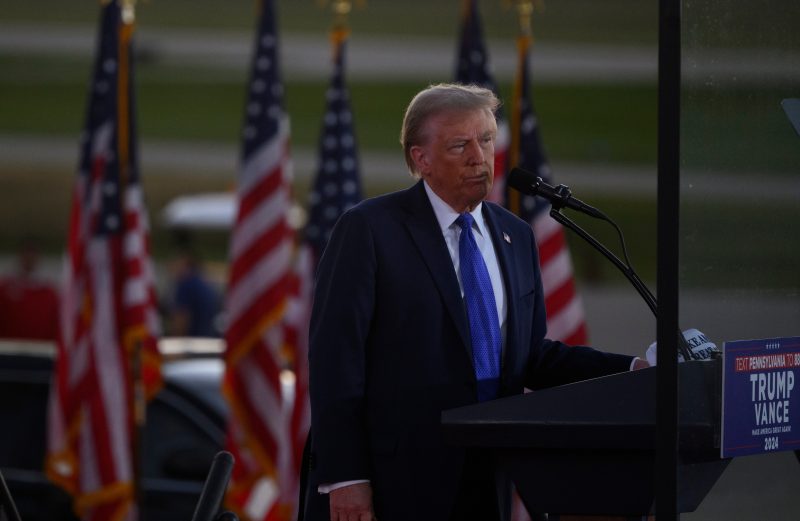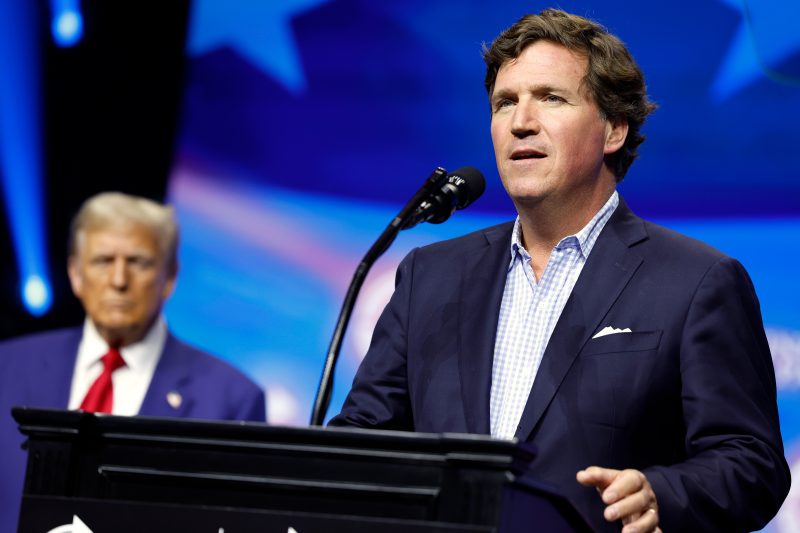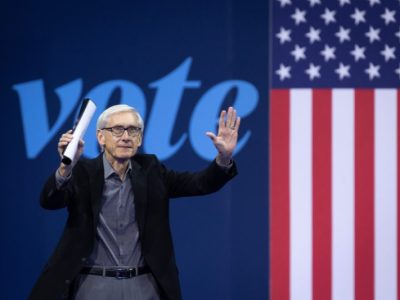
As Election Day nears and a parade of anti-Trump Republicans announce their support for Vice President Kamala Harris, one prominent GOP Trump critic has withheld his endorsement: Sen. Mitt Romney (R-Utah), one of the rare anti-Trump Republicans who still holds elected office.
Romney, the lone Republican senator who voted to convict Trump during his first impeachment trial in 2020 and an outlier in today’s Republican Party, has consistently criticized the Republican nominee and lamented what he views as the decline of the GOP under the former president.
But for all of his denunciations of Trump, Romney — who is set to retire when his term ends in January — has so far resisted outreach from the Harris team and subtle pressure from Republican officials associated with the Democrat’s campaign who want him to officially back her. With weeks left before Election Day, time is running out for any endorsement to influence voters.
Romney has questioned the value and impact of his endorsement and expressed a desire to preserve his ability to rebuild the Republican Party in a post-Trump world, said three people familiar with those conversations and his thinking who spoke on the condition of anonymity to discuss private deliberations.
He has also cited concerns for the safety of his family as one reason for his reluctance to endorse her, a person familiar with his thinking said, also speaking on the condition of anonymity to disclose private conversations.
Romney has publicly detailed some of his thinking on the matter. In an interview with MSNBC host Stephanie Ruhle this year, when President Joe Biden was still the Democratic nominee, Romney said he wouldn’t be voting for Trump but declined to disclose whom he ultimately plans to support. In the past two elections, Romney has written in his wife’s name.
“My particular vote doesn’t have a big impact: I’m from Utah,” Romney said. “In my case, having been the former nominee of the Republican Party, I want to make sure that I’m in a position after this election to have some influence on the direction of our party in the future. So I’m not going to go out and do something that would make that more difficult to occur.”
In a recent interview with the Atlantic, Romney hinted at his anxiety over attacks he and his family might face if Trump is elected again.
“How am I going to protect 25 grandkids, two great-grandkids?” Romney said, after hypothesizing whether a future Trump Justice Department would target him or his sons. ‘I’ve got five sons, five daughters-in-law — it’s like, we’re a big group.”
In the halls of Congress, reporters have pestered Romney for weeks about whether he’ll join some of his fellow GOP outcasts in backing Harris. He’s shared some compliments for his former Senate colleague, praising her debate performance this month and calling her an “intelligent, capable person who has a point of view on issues.”
But when pushed further on a potential Harris endorsement, Romney has ended those conversations, saying he has “nothing to add.”
“People know where I stand on Donald Trump, and that’s enough,” Romney added in a recent interview with The Washington Post.
The Harris campaign has rolled out dozens of endorsements from high-profile Republicans since Biden dropped out of the race, and hundreds of other GOP officials have backed her, launching “Republicans for Harris” as part of her effort to court independent and moderate Republicans who may not support Trump. The campaign has also designated former Trump officials like Anthony Scaramucci and Stephanie Grisham, who spoke at the Democratic National Convention, as surrogates. More than 200 Republicans who worked for Romney, the late Sen. John McCain (R-Ariz.) and President George W. Bush published an open letter in support of Harris last month, warning that another Trump presidency “will hurt real, everyday people and weaken our sacred institutions.”
“This race is going to be so close — if the term ‘your vote counts’ means anything, it means everything for this election,” Grisham said in an interview. “So not to endorse or not actually vote for her? You’re throwing away your vote and the opportunity to get rid of extremism.”
Former congresswoman Liz Cheney (R-Wyo.) and two GOP establishment figures who were previously reviled by the Democratic Party — former vice president Dick Cheney and Alberto Gonzales, the former U.S. Attorney General under Bush — have endorsed Harris in the last month.
“The character of the person we elect in November is particularly important today because the current members of the House of Representatives and the Senate have proved spectacularly incapable or unwilling to check abuses of executive power,” Gonzales wrote in an op-ed in Politico endorsing Harris.
Some Republicans, including Sen. Tom Cotton (R-Ark.), have questioned the significance of these endorsements.
“I think what it tells us is that there’s a lot of ferment in American politics,” Cotton said on CNN last week. “But in the end, endorsements are not going to make the difference in this race. What’s going to make the difference is their records. This is a very unusual presidential election.”
Romney has similarly questioned the potential impact of an endorsement. But he also worries that backing a Democratic candidate would hurt his ability to be a credible conservative voice going forward and has expressed an unwillingness to publicly betray his policy convictions by endorsing someone he fundamentally disagrees with on an ideological level, according to a person familiar with his thinking.
In the Atlantic interview, Romney cited his discomfort with Biden’s policies as one of the barriers to endorsing the sitting president, who dropped out of the race in July.
“Biden’s policies drive me crazy,” Romney said. “And one of the reasons I think there are people like me who shrink at the idea of endorsing Biden is, does that mean I endorse his border policies? Or do I endorse giving trillions of dollars to college students to pay their debt?”
A handful of other former top Republicans have distanced themselves from the MAGA movement but similarly abstained from backing Harris. Former House speaker Paul Ryan (R-Wis.) said in an interview this spring that he would not be voting for Trump — “character is too important to me — and that the presidency is a job that requires the kind of character that he just doesn’t have” — but he’s “going to write in a Republican.” And Bush’s office recently announced in a statement that he would not be endorsing in this election cycle, as he “retired from presidential politics years ago.”
In an interview following her announcement, Cheney argued that writing in someone other than Harris was insufficient.
“Given how close this race is, in my view, again, it’s not enough,” she told ABC News, adding that it was important to “actually cast a vote for Vice President Harris.”
A GOP operative, speaking on the condition of anonymity to be candid, dismissed the idea that Republican endorsements for a Democrat aren’t impactful, arguing that some voters on the right still relied on the “permission structure” to provide an emotional or psychological justification for those who might otherwise have reservations about voting for Harris. The operative said that especially in an election that will probably be extremely close, Romney could make a difference in a key swing state like Michigan, where he was born and his father served as governor.
“Romney already doesn’t have much influence inside today’s Republican Party,” the operative added. “But just because he isn’t shaping the party’s direction now doesn’t mean he won’t be able to down the line … The effort to reposition the party will be a long, long ordeal.”












